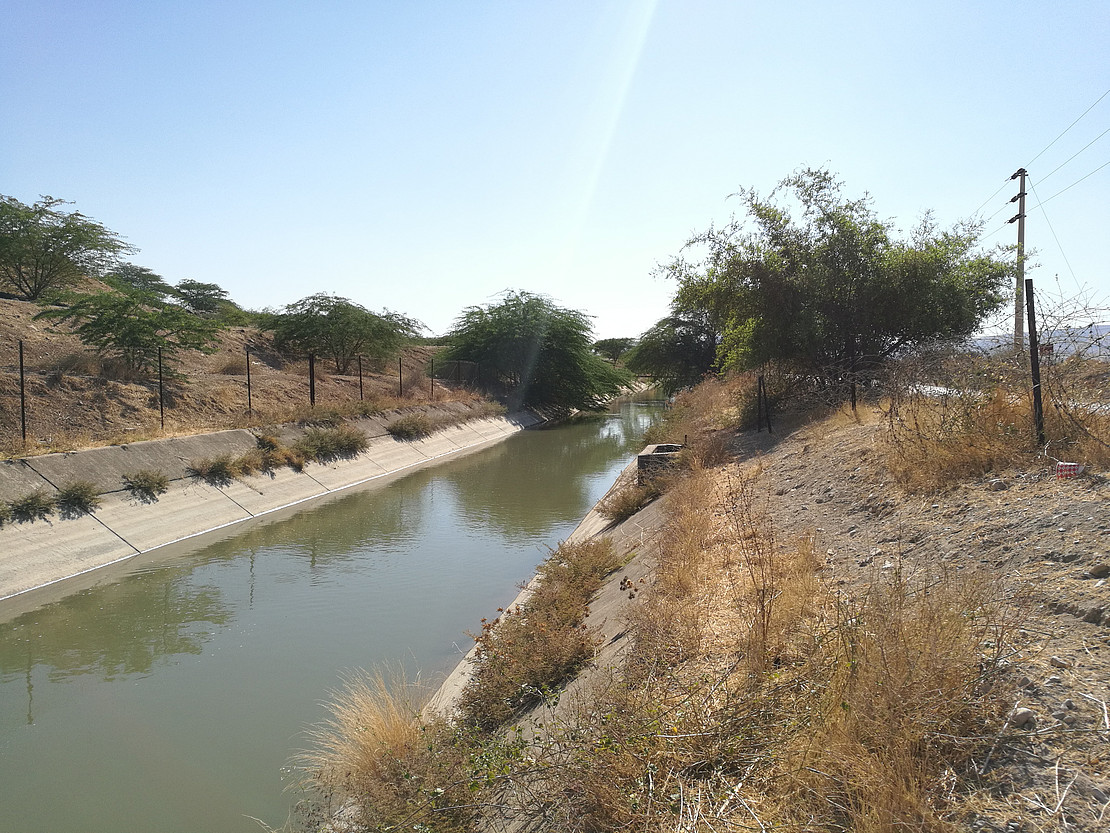This page contains automatically translated content.
Kassel scientists find way to save water in the Middle East
 Image: Klein/Theobald.
Image: Klein/Theobald.The Jordan River and the Sea of Galilee, which it flows through, play a crucial role in the Levant's drinking water supply and agriculture. Israel alone draws up to 400 million cubic meters of fresh water per year from the Sea of Galilee, while Jordan draws 100 million cubic meters annually under a treaty signed with Israel in 2021. At the same time, forecasts for the coming decades predict an increased demand for freshwater with a simultaneous decline in water supply.
This makes it all the more urgent to use the available water sparingly and in the best possible way. Initial simulations by Prof. Dr. Stephan Theobald and Martin Klein from the Department of Hydraulic Engineering and Water Resources Management at the University of Kassel have now shown that it is possible to save up to 8 percent of the water. The starting point is a control of the water discharge of the Sea of Galilee that anticipates Jordan's planned water withdrawal.
While Israel draws water directly from the lake through a pipeline, Jordan receives water through the King Abdullah Canal, which is fed from the lake and from some tributaries and crosses the Jordan Valley parallel to the river. At 31 points, water is taken and used for agriculture. According to the proposal of the two scientists from Kassel, the Jordanians should report the planned withdrawals to the Israeli operators of the dam; they could then determine in advance when they have to release how much water in order to meet the water demand at the exact time and place. To do this, the Kassel-based company used a tool to create a calculation basis.
"Since no exact data is available on water consumption in Jordan, we calculated with averaged monthly data," Klein qualifies. "The exact amount of potential savings is therefore still uncertain. What is clear, however, is that it is possible to save a substantial amount of water at the Sea of Galilee that would otherwise seep away, evaporate or otherwise be lost." Whether the proposal will be implemented is an open question and depends on the willingness of the Jordanians and Israelis to cooperate. The scientists recently presented their study at a conference in Dubai. "In principle, the approach of saving water by anticipatory control of dams is transferable to other water-scarce areas," Klein said.
The study is part of the SALAM initiative. The SALAM initiative is a collaborative project in which 20 partner institutions from Palestine, Jordan, Israel and Germany are working together on strategies to solve the water deficit problem in the Middle East. It was financially supported by the German Federal Ministry of Education and Research.
Contact:
Prof. Dr. Stephan Theobald
University of Kassel
Department of Hydraulic Engineering and Water Resources Management
Tel.: +49 561 804-2679
E-mail: wawi[at]uni-kassel[dot]de
Press contact:
Sebastian Mense
University of Kassel
Communications, Press and Public Relations
Tel.: +49 561 804-1961
E-mail: presse[at]uni-kassel[dot]de
www.uni-kassel.de